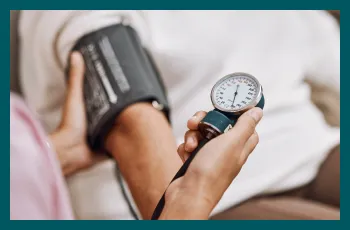Does Alcohol Increase Blood Pressure?
Written by the editorial staff writer at Hola. Medically Reviewed by Dr Nelson Lau, MBBS FRACGP, GP & Digital Health Specialist. Dr. Ammar AL-ANI, MBChB, CCBST, AMC. Blog updated on 14 November, 2025. Originally published on 03 June, 2024.

Contents

Overview
Around 1 in 4 Australians aged 18 and over exceed the national alcohol guidelines1 at least once a month. Australians love a social drink, but few realise its effects on blood pressure. High blood pressure (hypertension) is one of the country’s biggest silent killers. So, does alcohol increase blood pressure? Let’s explore the facts and what it means for your health.Understanding blood pressure
Blood pressure indicates the force with which blood flows through your arteries when the heart contracts. It’s recorded as :- Systolic (top number): pressure when your heart beats
- Diastolic (bottom number): pressure when your heart rests between beats
| Category | Reading (mmHg) |
| Normal | 120/80 |
| High (hypertension) | 140/90 or higher |
Alcohol and the cardiovascular system
Alcohol affects your body in several ways, and one of them is its known impact on blood pressure.-
Immediate effects:
- Alcohol gets absorbed into your blood quickly, causing a temporary rise in heart rate and blood pressure.
- These spikes can be mild or more pronounced, depending on your intake and individual response.
-
Long-term impact:
- There is a strong connection between regular excessive drinking and long-term high blood pressure (hypertension).
- Over time, alcohol may damage your arteries, make them harder, and change the way your body regulates pressure.
- Alcohol raises heart risks by boosting triglycerides, reducing healthy HDL cholesterol, and adding extra weight, all of which can indirectly push up blood pressure.
-
Short-term spikes vs chronic hypertension:
- Excessive drinking may cause a temporary rise in blood pressure, even in people without hypertension.
- However, chronic or long-term heavy drinking is more likely to develop consistently elevated blood pressure over time.
Australian alcohol guidelines
To promote safer drinking habits, Australia follows evidence-based alcohol guidelines3.- No more than 10 standard drinks per week for healthy adults (men and women).
- No more than 4 standard drinks on any one day.
What counts as a “standard drink” in Australia?
A standard drink contains 10 g of pure alcohol.- 285 mL full-strength beer (4.8%) =1.1 standard drinks
- 375 mL mid-strength beer (5%) =1.5 standard drinks
- Wine, spirits, and other drinks can vary; always check the label
Feeling sick and unsure why? Speak with a GP online in 15 minutes.
Who’s more at risk?
Some groups are more susceptible to alcohol’s effects on blood pressure. Here are a few:- People with existing heart issues: Even mild drinking may increase blood pressure or interfere with medications.
- Aboriginal and Torres Strait Islander communities: Alcohol-related risks vary in these populations, making culturally appropriate support vital.
- Older adults: As arteries become stiffer and body systems change with age, alcohol’s effect on blood pressure may increase.
- People with other risk factors: Additional risk factors, such as obesity, excessive salt consumption, poor nutrition, and stress, may amplify alcohol’s effects.
Warning signs
High blood pressure is often called a hidden threat, as many people don’t feel symptoms. Here are a few warning signs:- Headaches, usually in the mornings
- Dizziness
- Nosebleeds (less common)
- Palpitations or chest pain
Where to check your BP in Australia:
- GP clinics or medical centres
- Pharmacies (many offer free or low-cost BP checks)
Tips for reducing alcohol-related BP risks
Here are some easy ways to reduce alcohol’s effect on blood pressure:- Take alcohol-free days each week
- Choose lower-alcohol or light options
- Alternate water or soft drinks between alcoholic drinks
- Limit salt consumption, as too much salt may increase blood pressure
- Keep your weight in a healthy range
- Engage in regular physical activity to help keep blood pressure normal
- Manage stress and sleep well
- Seek medical advice regarding safe drinking if you have high blood pressure
How Hola Health can help
Hola Health can help you achieve your heart and health objectives. We offer:- Blood pressure monitoring tools and tracking
- Customised lifestyle advice
- Quick access to GPs or telehealth consultations for tailored medical guidance.
Conclusion
Alcohol can increase blood pressure—both immediately and especially, over time, with frequent or excessive drinking. Australians need to be aware of this, adhere to national guidelines, and make informed decisions regarding their drinking habits. Remember, less is better. If you drink, stay within safe limits, check your blood pressure routinely, and seek guidance or support when necessary. Stay informed, take care of yourself, and protect your heart; it matters.FAQs
Can drinking alcohol cause high blood pressure?
Yes. Regular heavy drinking can increase the risk of persistent high blood pressure. Even occasional drinking can cause short-term spikes.Does moderate drinking affect blood pressure?
It can. For some people, even moderate drinking may result in minor elevations. However, the impact is not the same for everyone.How much alcohol is considered safe for blood pressure?
According to Australian guidelines, up to 10 standard drinks per week and no more than 4 standard drinks in a day for healthy adults is considered low risk.Are some types of alcohol safer than others for blood pressure?
Not really. The type (beer, wine, spirits) of alcohol matters less than drinking quantity and frequency, since all alcoholic drinks contain alcohol, which influences blood pressure.How can I lower my blood pressure if I drink alcohol?
Reduce your alcohol consumption, take alcohol-free days, choose drinks with lower alcohol, drink plenty of water, eat less salt, engage in regular physical activity, and consult your GP or health service.Feeling sick and unsure why? Speak with a GP online in 15 minutes.
Reference
- Alcohol consumption - reference link
- National Library of Medicine - reference link
- How much alcohol is safe to drink - reference link
- National Alcohol and Other Drug Hotline - reference link
- Alcohol and Drug Foundation - reference link
What we treat
- Cough
- Nausea & vomiting
- Fever
- Hayfever
- Fatigue
- Sore throat
- Acne
- Hair loss
- Gout
- Eczema
- Rosacea
- Sunburn
- UTI
- Erectile dysfunction
- Contraception
- Morning sickness
- Morning after pill
- Prostate health
- Anxiety
- Depression
- Stress
- Grief & loss
- Antidepressants
- Premature ejaculation
- Asthma
- Blood pressure
- Blood thinners
- Diabetes
- Cholesterol
- Migraines & headaches
- Allergies
- Body ache
- Heartburn & reflux
- Sleep disorder
- Pain relief
- Gastro
Related Articles
Healthy Blood Pressure By Age: What Is Good Blood Pressure Based On Age?
Disclaimer
This blog is for general informational purposes only and does not indicate that Hola Health provides all treatments or preventive measures mentioned. It is not intended to be a substitute for professional medical advice. Always seek the guidance of your doctor or other qualified health professional with any questions you may have regarding your health or a medical condition. For emergencies please immediately contact 000. Any medical topics discussed are intended to educate, not to imply availability through Hola Health.
 Facebook
Facebook  X
X  Copy Link
Copy Link



